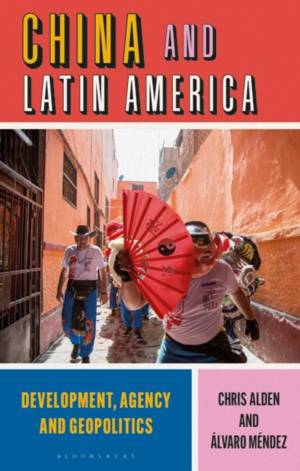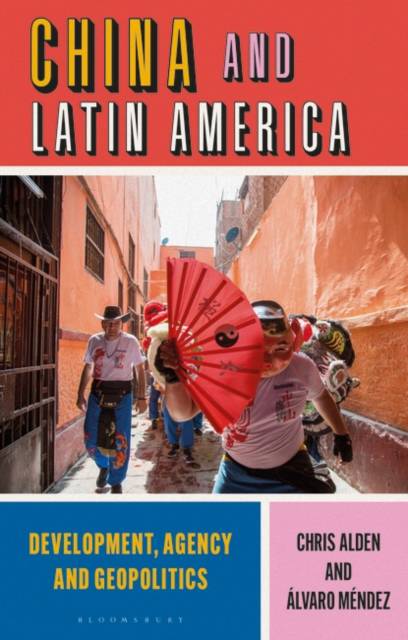
Bedankt voor het vertrouwen het afgelopen jaar! Om jou te bedanken bieden we GRATIS verzending (in België) aan op alles gedurende de hele maand januari.
- Afhalen na 1 uur in een winkel met voorraad
- In januari gratis thuislevering in België
- Ruim aanbod met 7 miljoen producten
Bedankt voor het vertrouwen het afgelopen jaar! Om jou te bedanken bieden we GRATIS verzending (in België) aan op alles gedurende de hele maand januari.
- Afhalen na 1 uur in een winkel met voorraad
- In januari gratis thuislevering in België
- Ruim aanbod met 7 miljoen producten
Zoeken
China and Latin America
Development, Agency and Geopolitics
Chris Alden, Alvaro Mendez
Hardcover | Engels
€ 161,45
+ 322 punten
Omschrijving
Since the turn of the century bilateral trade between China and Latin America has increased by more than a factor of ten. In 2000, two-way trade stood at £12.17 billion; by 2019, it had reached $307.94 billion. Coupled with this commercial element of China-Latin America relations is a growing assertiveness in diplomatic and military affairs. Yet Beijing is showing caution in its diplomatic engagement, especially with the more left leaning countries of Venezuela and Ecuador. However, Latin America's enthusiasm in this regard has taken even the Chinese by surprise.
What are we to make of these shifting dynamics? In this detailed and up-to-the-minute investigation, Chris Alden, author of the critically acclaimed China in Africa, and Alvaro Mendez, leading expert in the international relations of Latin America, look at the interests, strategies and practices of China's incoming power. What can be learned by comparing Latin America with other developing regions in which China has had significant economic ties and a growing diplomatic stake? Does Beijing's approach to Latin America really differ, as is often claimed by Chinese leaders, from its approach to Africa? And more broadly, how should we read the curious and uneven decline of both the US and Europe as actors in the region?Specificaties
Betrokkenen
- Auteur(s):
- Uitgeverij:
Inhoud
- Aantal bladzijden:
- 296
- Taal:
- Engels
Eigenschappen
- Productcode (EAN):
- 9781786992536
- Verschijningsdatum:
- 26/01/2023
- Uitvoering:
- Hardcover
- Formaat:
- Genaaid
- Afmetingen:
- 140 mm x 216 mm
- Gewicht:
- 485 g

Alleen bij Standaard Boekhandel
+ 322 punten op je klantenkaart van Standaard Boekhandel
Beoordelingen
We publiceren alleen reviews die voldoen aan de voorwaarden voor reviews. Bekijk onze voorwaarden voor reviews.









